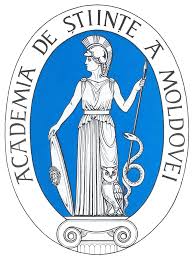- Views: 827
On the 28th of September, in the Blue Hall of the Academy of Sciences of Moldova, the International Conference with the generic "Basic Sciences for Sustainable Development and Peace" took place, dedicated to the International Year of Basic Sciences for Sustainable Development, declared as such at the end of last year ( 2 December 2021) during the 76th Session of the United Nations General Assembly. Thus, the year 2022 was proclaimed the International Year of Basic Sciences for Sustainable Development, noting that the applications of basic science are vital for the advancement of medicine, industry, agriculture, water resources, energy, ecology, communications and culture, and innovative technologies, originating from fundamental sciences, correspond to the need to ensure humanity's access to information, well-being and the promotion of peace through a more effective collaboration to achieve the Sustainable Development Goals.
In his inaugural speech, Prof. Ion Tighineanu, the president of AȘM, emphasized that basic sciences are the basis for understanding the origin of matter, the interactions and laws that govern the Universe, help researchers to better understand the functioning of mechanical and life systems and processes. In the context, he recalled with admiration how the so-called "God particle" was predicted by the British scientist Peter Higgs in the mid-60s of the last century, so that over 50 years later it was discovered experimentally by the collaborators of the European Nuclear Research Center near Geneva (CERN). It was a triumph of science, and primarily of basic research.
At the same time, the president of AȘM nominated examples of significant achievements in basic research in our republic. At the beginning of the 60s of the last century, Prof. Sveatoslav Moscalenco theoretically predicted the phenomenon of Bose-Einstein condensation of excitons and biexcitons in semiconductors. This phenomenon, after 50 years from its theoretical prediction, has been the basis for the development of the polariton laser, today under implementation in biomedicine. Besides, a considerable impact on the development of materials science was generated by the discovery of Prof. Isaac Bersuker at the end of the 70s of the last century, regarding the effect of splitting the energy levels of polyatomic systems in a state of degeneration. Currently, the scientist passionately continues his scientific activity in the USA, at the age of 94.
The results of fundamental research in physics, mathematics, chemistry, biology, medicine, etc., which have stood out, especially in the last two years, when human civilization has faced the COVID-19 pandemic, cannot be overlooked. Without the results of basic research produced over decades, the identification of the virus and its genetic sequences and variations, the development of the vaccine, the principles of testing, treatment, epidemiological modeling and even rapid communication over long distances would have been impossible.
It is to be noted that the Conference held at the Academy of Sciences of Moldova was attended online by scientific personalities of international prestige from 7 countries of the world, interested in the respective theme in a world affected by war, regional conflicts, energy crisis, poverty, etc. Prof. Ion Tiginyanu from the podium of the International Conference introduced the participants, wherever they were: in France, Romania, USA, Belgium, Great Britain, Japan, Germany etc.
Greeting messages with wishes for success, with current information and appreciations regarding the organized event were presented by Dr. Luc Allemand from Paris, France, Secretary General of the Agenda of the International Year of Basic Sciences for Sustainable Development; Dr. Anne Haglund-Morrissey, Directorate-General for Research and Innovation of the European Commission; Prof. Ioan-Aurel Pop, president of the Romanian Academy, Dr. Luminița Drumea, deputy general secretary of the National Commission of the Republic of Moldova for UNESCO.
Prof. Ioan-Aurel Pop, president of the Romanian Academy, in his address to the participants of the international conference emphasized the following: "The Romanian Academy, as always, is with the Academy of Sciences of Moldova in organizing extremely important events. We are impressed that prominent personalities of the world science, Nobel Prize Laureates, specialists in various fields who know that the scientist's duty is not only research, but also maintaining an atmosphere of peace and development in society, participate in the realization of this program. During the interwar period, Nicolae Titulescu, Romanian foreign minister in various governments, scholar and member of the Romanian Academy, campaigned all his life for the preservation of peace and offered us examples of spiritualizing borders, creating an atmosphere of peace, avoiding of the war. He even said that when war threatens, we prepare not for battle, but for the organization of peace. Lately, the Romanian Academy made an Appeal to all European academies to join a global movement to defend peace on the continent and in the world".
Dr. Luc Allemand, the General Secretary of the Agenda of the International Year of Basic Sciences for Sustainable Development, honored us with a visit to AȘM and presented at the conference the communication "The Purpose and Agenda of the International Year of Basic Sciences for Sustainable Development". The distinguished guest highlighted the significance of the event and referred to the most important actions to be carried out in the near future.
A festive moment of the International Conference was the launch of the Sustainable Development Anthem "Blue Planet" for mixed choir and piano, the author of the music and lyrics being the composer Constantin Rusnac, Doctor Honoris Causa of AȘM. The recording of the work was made by the National Symphony Orchestra of the "Teleradio-Moldova" Company, under the baton of the first conductor and artistic director Gheorghe Mustea, a member of the AȘM. AȘM President Ion Tighineanu expressed his hope that this inspired musical work with a strong message of responsibility and peace will become an Anthem of the international scientific community.
As Secretary General of the National Commission of the Republic of Moldova for UNESCO, composer Constantin Rusnac presented at the conference his communication "Culture and its role in sustainable development". The author is convinced that most people believe that at the current stage the main condition in the process of transition to a sustainable development of society is Culture and only Culture, a word spelled with a capital letter. "Culture makes people understand each other better. And if they understand each other's souls better, it is easier to overcome economic and political barriers. But first, they have to realize that their neighbor is, in the end, like them, with the same problems, with the same questions". The quote belongs to the Brazilian writer Paulo Coelho, who, according to Mr. Constantin Rusnac, thinks like a true citizen of our beautiful blue planet, sung by him in the Anthem presented at the conference.
The communication of Prof. Victor Juc, the director of the Institute of Legal, Political and Sociological Research, entitled "Peace and security in the context of the global conflict model" is perfectly included in the discussions started. The year 2022 is marked by the armed conflict (active phase) launched by the Russian Federation against Ukraine, the speaker specified. But in the Eurasian geopolitical area there are several conflicts, open and latent, "frozen" and "thawed", which together form the conflict model of world order. This model is expressed through the threat of using nuclear weapons in a conventional war, ignoring the principles and norms of international law, including humanitarian law, using hybrid means for intimidation, the author noted. Next, the scientist makes an observation accepted by the participants of the scientific event: "In fact, the act of aggression against Ukraine represents the war between totalitarianism and democracy, between the forces of war and the forces of peace."
Prof. Masakazu Kimura's communication, director of the Electronics Research Institute at the University of Shizuoka, Japan, was also listened to with interest. The theme presented online concerned the organization of research in the field of basic sciences in this higher education institution and obtaining the most important results.
Prof. Richard J. Roberts, Nobel Laureate in Medicine (2013), New England Biolabs, USA addressed the topic "Importance of Basic Sciences in Biomedicine". This important field, through its exceptional results, has contributed to the advancement of the treatment of the COVID-19 infection, the development of vaccines, etc. Professor Richard Roberts expressed his support for Ukraine and the scientific community in this country in the war launched by the Russian Federation. He was the main promoter of the "Open Letter", signed by more than 200 Nobel Laureates, which won the hearts of the entire Planet.
We also enjoyed the presentation of Prof. Rattan Lal, Laureate of the Nobel Peace Prize (2007) and the World Food Prize (2020), Center for Carbon Management and Sequestration at Ohio State University, USA. The theme of his communication "Basic science transforms soil management and agriculture into solutions for climate change adaptation and mitigation" is on the global agenda. Global warming is among the major problems of the 21st century. An effective transdisciplinary and interdisciplinary approach to this complex problem, as to any aggravating problem, requires closer cooperation between numerous scientific disciplines such as pedology, ecology, geology, climatology, meteorology, hydrology, biogeochemistry, biogeophysics, public health with socio-humanities, such as sociology, economics, public policy and political science. Understanding the interconnectivity or link between the biophysical and social sciences is the essence and solution to climate change adaptation and mitigation.
Prof. Boris Boincean, the director of the Research Institute for Field Crops "Selecția" from Bălți, who has been cooperating for many years with the professor Ratan Lal from USA, came to the conference with a theme similar to that of his partner, but taking into account the specifics of soils and the situation in the Republic of Moldova: "Basic sciences in relation to soil management in agriculture". The professor referred in detail to the carbon cycle which over the course of a millennium refers to the exchange of carbon between the soil surface and the lithosphere. This carbon cycle is important in climate change mitigation and adaptation. The carbon cycle also includes the exchange between the biosphere, ocean and atmosphere. Plants, in turn, contribute to reducing global warming through the process of photosynthesis, which causes seasonal fluctuations (summer and winter) in the carbon dioxide content of the atmosphere.
Prof. Randy Schekman, Nobel Laureate in Medicine (2007), University of California/Berkeley, USA: Every country needs to invest in a basic scientific infrastructure, because the students we train in the basic sciences very often become entrepreneurs and scientists working for startup companies. Here they develop their ideas, turning them into commercial products. We in the US have enjoyed tremendous growth in the pharmaceutical industries precisely because of that link between basic science and industrial application. Thus, I urge every country in the world to recognize the importance of investing in fundamental sciences for its own industrial development.
Prof. Konstantin Novoselov, Nobel Laureate in Physics (2010), University of Manchester, UK: I am a big supporter of basic sciences and believe that they are the only field of human activity that will bring prosperity and manage to find solutions to challenges nowadays. With the passage of time, the radical achievements of science will become the most interesting and useful. Any modern technology began to develop on the basis of a discovery in science. That's why I think we need to recognize this and have a broad understanding from the whole society. Basic sciences need huge support.
Acad. Isaac Bersuker, University of Texas, USA: We must ensure a high level of education, culture, way of thinking, the atmosphere in which the creative potential necessary to promote innovations develops, an objective that cannot be achieved without the development of basic sciences.
Academician Leonid Culiuc, Institute of Applied Physics: Everything we have today, starting with mobile phones, computers, optical fiber communication systems, ... modern electronics – everything is a consequence of the development of basic theoretical research.
Corresponding member Constantin Gaindric, Institute of Mathematics and Informatics "Vladimir Andrunachievici": Society and government see, first of all, the practical aspect of science. At the same time, the cognitive moment, the acquisition of knowledge is no less important, even if today a theory seems a luxury to us, tomorrow we may regret not having invested in its development.
Corresponding member Alexandru Stratan, Academy of Economic Studies of Moldova: Science is a generator of modern technology and an important tool of economic development. Moreover, the productivity increases with increasing funding of basic research...
Prof. Vladimir Fomin, Honorary Member of AȘM, coordinator of the Communication Platform "Basic Sciences for the Sustainable Development of Society", Germany: Basic Sciences are important not only for strong states, but also for small ones with modest resources, such as the Republic Moldova. A country without research has no future!
The International Conference with the generic "Basic Sciences for Sustainable Development and Peace" ended with the approval of a Resolution, the text of which will be completed, drafted and published. At the same time, based on the statutory provisions, it was proposed to create within the Academy of Sciences of Moldova the Support Center for national and international interdisciplinary projects, aiming to strengthen the efforts related to the support and promotion of basic research.
Returning to the Sustainable Development Anthem "Blue Planet" for mixed choir and piano, by the composer Constantin Rusnac, launched at the Conference, we express our optimism that this musical work with a strong message of peace will become an Anthem of the international scientific community: "We are obliged to we keep: / And the green of the divine grass, / And the blue of the clear sky!" Thanks to the author!




